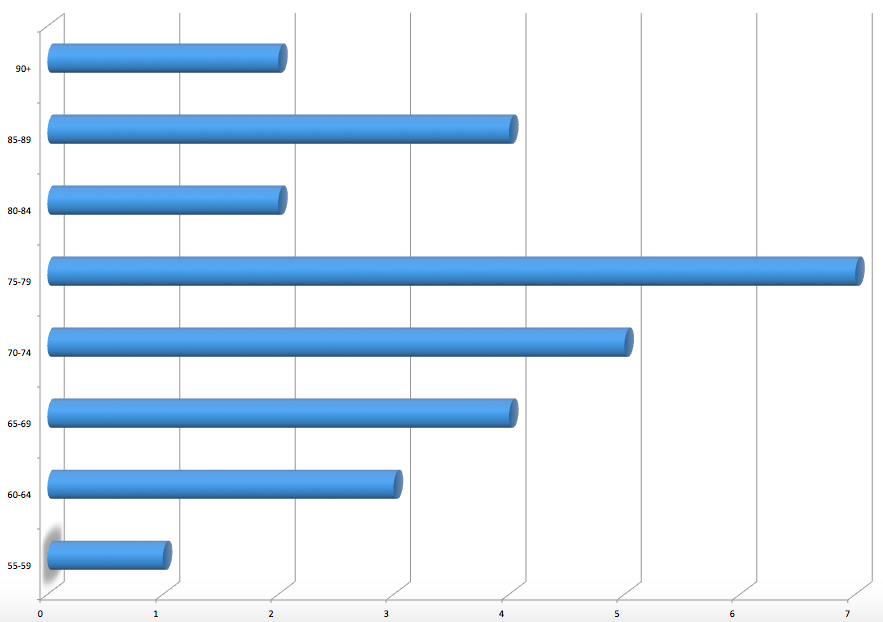touchdownvikings
Well-known member
- Joined
- Nov 11, 2011
- Messages
- 843
- Reaction score
- 930
- Points
- 93
It’s time for that post I do every year: point totals for games won in the B1G. Below you see a distribution presenting the point totals of the winning team in each game in B1G competition, to date.

Some takeaways:
(1) The interquartile range is 71-86, with the median being 80 points: 50% of the time, the winning team in B1G play scores 80 points or more. If you are trying to win scoring 70 points or fewer, you are trying to win with a point total accounting for fewer than 1-in-4 B1G victories.
(2) The 10th percentile is pegged at 66 points. If you are trying to win with 65 points or fewer, you are trying to win with a point total accounting for fewer than 1-in-10 B1G victories.
(3) The Gophers losses this year have come on offensive performances wherein they score 57, 59, 65 and 71 points. In 3 of the 4 instances, their losses came when they scored a point total falling short of the 10th percentile. In those cases, their problem is not defense: it is offense. They simply do not score enough points for there to be a significant chance of victory even if they played lights-out defense.
(4) The Gophers have not lost when they produce a point total equal to or better than the median for B1G victories. Stated another way, their defensive performance has been such that they have never squandered an opportunity when “on average” a B1G team should have expected a victory.
(5) If this team can figure out how to score on the road, the numbers suggest they will be a very competitive team.

Some takeaways:
(1) The interquartile range is 71-86, with the median being 80 points: 50% of the time, the winning team in B1G play scores 80 points or more. If you are trying to win scoring 70 points or fewer, you are trying to win with a point total accounting for fewer than 1-in-4 B1G victories.
(2) The 10th percentile is pegged at 66 points. If you are trying to win with 65 points or fewer, you are trying to win with a point total accounting for fewer than 1-in-10 B1G victories.
(3) The Gophers losses this year have come on offensive performances wherein they score 57, 59, 65 and 71 points. In 3 of the 4 instances, their losses came when they scored a point total falling short of the 10th percentile. In those cases, their problem is not defense: it is offense. They simply do not score enough points for there to be a significant chance of victory even if they played lights-out defense.
(4) The Gophers have not lost when they produce a point total equal to or better than the median for B1G victories. Stated another way, their defensive performance has been such that they have never squandered an opportunity when “on average” a B1G team should have expected a victory.
(5) If this team can figure out how to score on the road, the numbers suggest they will be a very competitive team.

